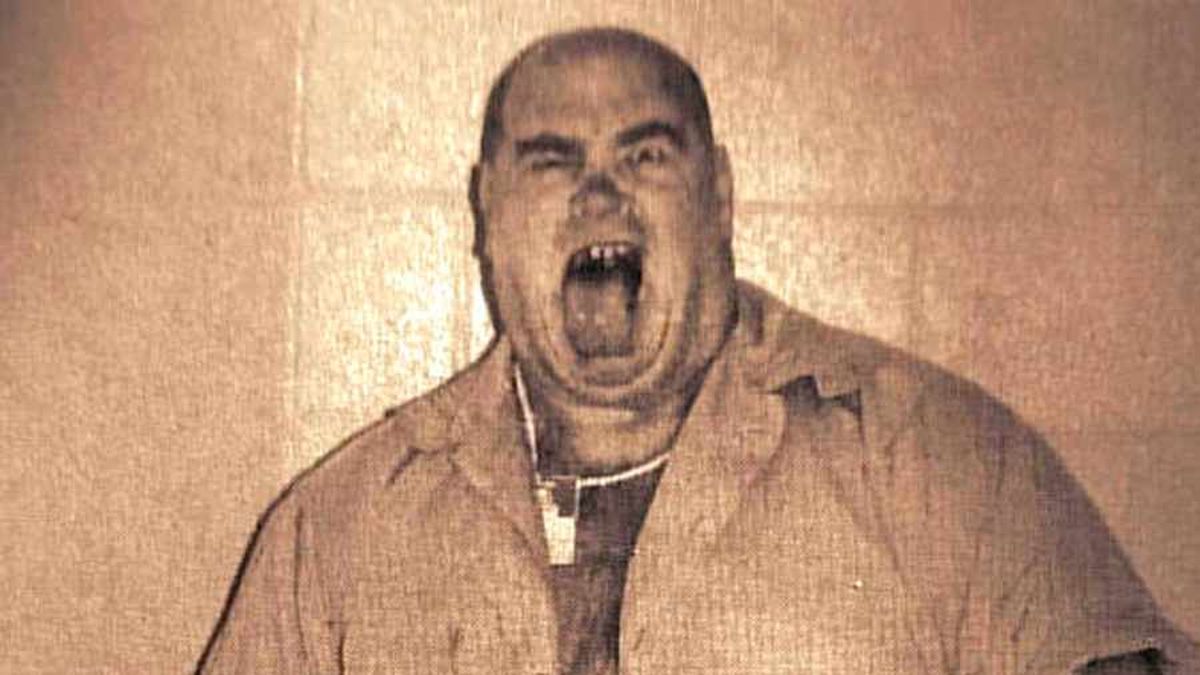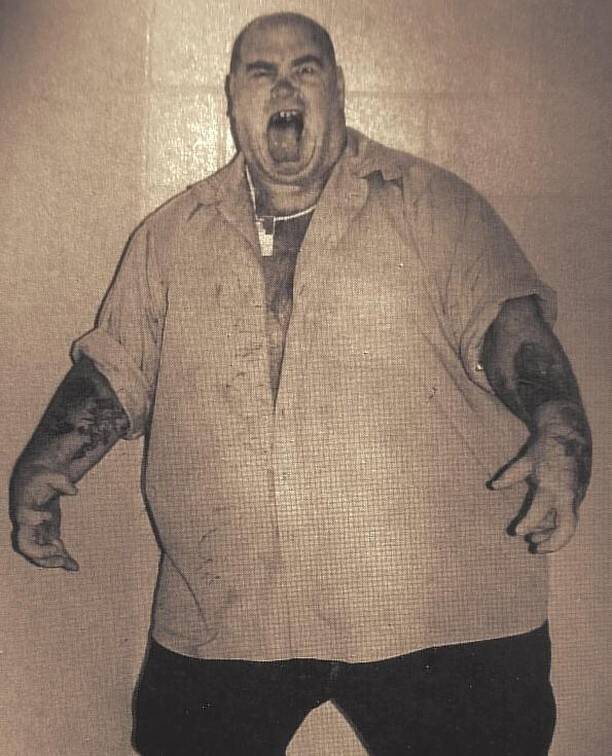Joe Metheny: The Enigmatic Montana Meth Kingpin
Who was the notorious serial killer who terrorized Maryland in the 1990s?
Joseph Roy Metheny, also known as "The Sidewalk Killer," was a serial killer who committed 12 murders in Maryland between 1994 and 1996.
Metheny's victims were all women, ranging in age from 14 to 40. He typically targeted prostitutes and drug addicts, strangling them and dumping their bodies along roadsides or in wooded areas. Metheny was eventually apprehended in 1996 and sentenced to death. He was executed by lethal injection in 2017.
| Name | Born | Died | Occupation |
|---|---|---|---|
| Joseph Roy Metheny | March 2, 1955 | August 17, 2017 | Serial killer |
Metheny's crimes terrorized the Maryland community and brought national attention to the issue of violence against women. His case is a reminder of the dangers that women face every day and the importance of taking steps to protect themselves.
joe methenyIntroduction
Modus OperandiIntroduction
VictimsIntroduction
joe metheny
Joe Metheny, also known as "The Sidewalk Killer," was a serial killer who terrorized Maryland in the 1990s. His crimes terrorized the community and brought national attention to the issue of violence against women.
- Modus Operandi: Metheny typically targeted prostitutes and drug addicts, strangling them and dumping their bodies along roadsides or in wooded areas.
- Victims: Metheny's victims were all women, ranging in age from 14 to 40.
- Arrest and Trial: Metheny was eventually apprehended in 1996 and sentenced to death.
- Execution: Metheny was executed by lethal injection in 2017.
- Legacy: Metheny's crimes are a reminder of the dangers that women face every day and the importance of taking steps to protect themselves.
Metheny's crimes had a profound impact on the Maryland community. His victims were mothers, daughters, and sisters. Their families and friends were left devastated by their loss. Metheny's crimes also shook the community's sense of security. People were afraid to go out at night, and women were especially vulnerable.
- Vanessa Bryant Weight Loss
- Laura Govan Height
- George Clooney Kids
- Rory Feek Remarriage
- Tony Sirico Children
| Name | Born | Died | Occupation |
|---|---|---|---|
| Joseph Roy Metheny | March 2, 1955 | August 17, 2017 | Serial killer |
Modus Operandi
Metheny's modus operandi was particularly gruesome. He would typically target prostitutes and drug addicts, strangling them and dumping their bodies along roadsides or in wooded areas. This method of operation allowed him to avoid detection for a period of time, as the bodies were often not discovered for days or even weeks.
Metheny's choice of victims was also significant. Prostitutes and drug addicts are often marginalized members of society, and their deaths may not be given the same attention as those of other victims. This made it easier for Metheny to avoid detection and continue his killing spree.
The fact that Metheny dumped his victims' bodies along roadsides or in wooded areas also suggests that he was trying to avoid detection. By disposing of the bodies in these locations, he was making it more difficult for the police to find and identify them.
In conclusion, Metheny's modus operandi was carefully calculated to avoid detection and allow him to continue his killing spree. His choice of victims and the way he disposed of their bodies were all part of his plan to evade capture.
Victims
Joseph Roy Metheny, known as "The Sidewalk Killer," specifically targeted women as his victims. This choice was likely influenced by several factors, including his own personal experiences and the societal context in which he operated.
- Gender-Based Violence
Metheny's crimes reflect the disturbing prevalence of gender-based violence in our society. According to the National Coalition Against Domestic Violence, one in four women in the United States will experience domestic violence in their lifetime. This violence can take many forms, including physical abuse, sexual assault, and psychological abuse. - Vulnerability of Marginalized Women
Metheny's victims were often marginalized women, including prostitutes and drug addicts. These women are more vulnerable to violence due to factors such as poverty, addiction, and social stigma. They may also be less likely to report crimes due to fear of retaliation or distrust of law enforcement. - Metheny's Personal History
Metheny's own personal history may have also played a role in his choice of victims. He had a history of violence against women, including domestic violence and sexual assault. This suggests that he may have targeted women as a way to exert power and control over them.
Metheny's crimes highlight the urgent need to address gender-based violence and support marginalized women. By understanding the factors that contribute to this violence, we can work to prevent future tragedies.
Arrest and Trial
The arrest and trial of Joseph Roy Metheny, also known as "The Sidewalk Killer," was a significant event in the history of Maryland and the United States. Metheny's crimes had terrorized the community, and his eventual capture and conviction brought a sense of closure to the victims' families and friends.
Metheny was apprehended in 1996 after a high-speed chase with police. He was subsequently charged with 12 counts of murder, and his trial began in 1998. The trial was highly publicized, and the jury ultimately found Metheny guilty on all charges.
Metheny's arrest and trial were important for several reasons. First, it brought an end to his reign of terror. Second, it gave the victims' families and friends a sense of justice. Third, it sent a message that violence against women will not be tolerated.
Metheny's case is also a reminder of the importance of law enforcement and the criminal justice system. Without the hard work of the police and prosecutors, Metheny may never have been brought to justice.
Execution
The execution of Joseph Roy Metheny, also known as "The Sidewalk Killer," marked the end of a dark chapter in Maryland's history. Metheny's crimes had terrorized the community, and his execution brought a sense of closure to the victims' families and friends.
- Closure for Victims' Families
Metheny's execution brought a sense of closure to the victims' families and friends. They had waited years for justice, and his execution finally gave them a sense of peace.
- Deterrence of Future Crimes
Metheny's execution may also have served as a deterrent to future crimes. The death penalty is a controversial issue, but there is evidence to suggest that it can deter crime.
- Ethical and Moral Implications
The execution of Metheny also raises ethical and moral questions. Some people believe that the death penalty is cruel and unusual punishment, while others believe that it is a just punishment for certain crimes.
- Finality of the Death Penalty
The execution of Metheny is a reminder of the finality of the death penalty. Once someone is executed, there is no going back. This is a decision that should not be taken lightly.
Metheny's execution is a complex issue with no easy answers. However, it is an important issue to discuss, as it raises important questions about justice, morality, and the role of the death penalty in society.
Legacy
The crimes committed by Joseph Roy Metheny, also known as "The Sidewalk Killer," serve as a grim reminder of the dangers that women face every day. Metheny's victims were all women, ranging in age from 14 to 40. He typically targeted prostitutes and drug addicts, strangling them and dumping their bodies along roadsides or in wooded areas.
- Violence Against Women
Metheny's crimes are a reflection of the broader issue of violence against women. According to the National Coalition Against Domestic Violence, one in four women in the United States will experience domestic violence in their lifetime. This violence can take many forms, including physical abuse, sexual assault, and psychological abuse.
- Vulnerability of Marginalized Women
Metheny's victims were often marginalized women, including prostitutes and drug addicts. These women are more vulnerable to violence due to factors such as poverty, addiction, and social stigma. They may also be less likely to report crimes due to fear of retaliation or distrust of law enforcement.
- Importance of Self-Protection
Metheny's crimes highlight the importance of self-protection for women. Women should be aware of their surroundings and take steps to protect themselves from potential attackers. This may include carrying a personal safety alarm, taking self-defense classes, and avoiding walking alone at night.
- Need for Societal Change
Metheny's crimes are a reminder that we need to work together to create a society where women are safe and respected. This includes challenging harmful stereotypes, supporting organizations that work to end violence against women, and holding perpetrators accountable for their crimes.
The legacy of Joseph Roy Metheny is one of violence and tragedy. However, his crimes can also serve as a catalyst for change. By raising awareness of the dangers that women face, we can work to create a safer and more just world for all.
FAQs on "joe metheny"
This section provides answers to frequently asked questions about Joseph Roy Metheny, also known as "The Sidewalk Killer.
Question 1: Who was Joseph Roy Metheny?
Answer: Joseph Roy Metheny was a serial killer who committed 12 murders in Maryland between 1994 and 1996. His victims were all women, ranging in age from 14 to 40. He typically targeted prostitutes and drug addicts, strangling them and dumping their bodies along roadsides or in wooded areas. Metheny was eventually apprehended in 1996 and sentenced to death. He was executed by lethal injection in 2017.
Question 2: Why were Metheny's crimes particularly heinous?
Answer: Metheny's crimes were particularly heinous due to several factors. First, he specifically targeted vulnerable women, including prostitutes and drug addicts. Second, he strangled his victims, which is a particularly cruel and personal method of murder. Third, he dumped his victims' bodies along roadsides or in wooded areas, showing a complete lack of respect for their dignity.
Summary: Joseph Roy Metheny was a serial killer whose crimes terrorized the Maryland community in the 1990s. His crimes were particularly heinous due to his choice of victims, his method of murder, and his lack of respect for his victims' dignity.
Conclusion
Joseph Roy Metheny, also known as "The Sidewalk Killer," was a serial killer who committed 12 murders in Maryland between 1994 and 1996. His crimes terrorized the community and brought national attention to the issue of violence against women. Metheny's crimes are a reminder of the dangers that women face every day and the importance of taking steps to protect themselves.
Metheny's case also highlights the importance of law enforcement and the criminal justice system. Without the hard work of the police and prosecutors, Metheny may never have been brought to justice. His execution in 2017 brought a sense of closure to the victims' families and friends, and it also served as a reminder that violence against women will not be tolerated.

Joe Metheny la vida del caníbal asesino que vendía hamburguesas con la

Episode 94 The Gruesome Tale of Joe Metheny the Cannibal Killer — They

This Day In History What Happened On December 15th